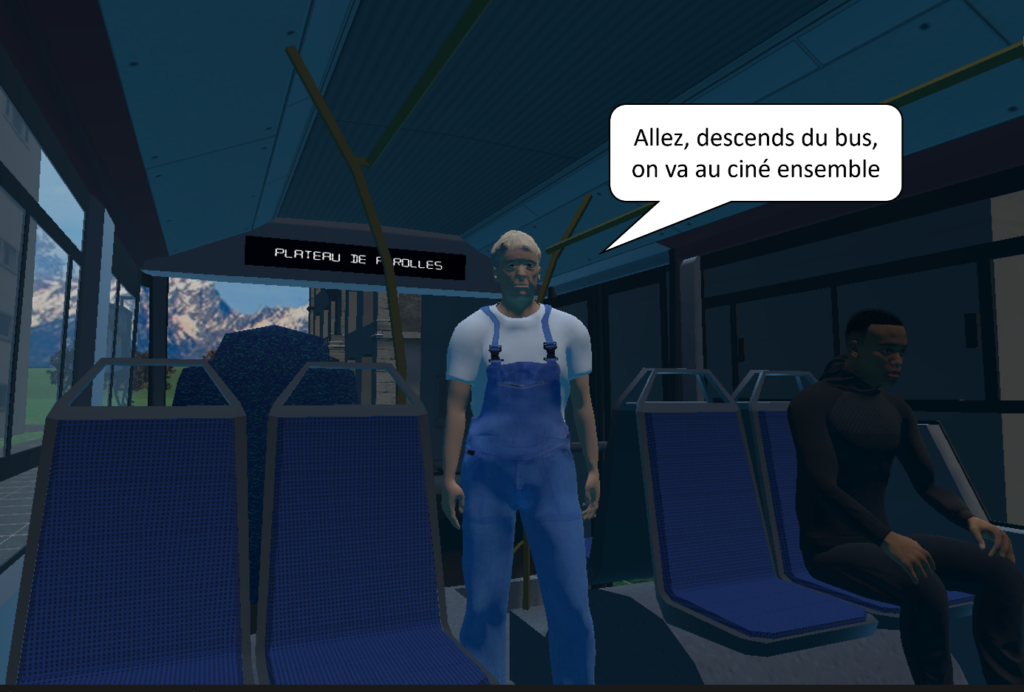Social interaction generator
Pro-GIS – Prototype of a Social Interaction Generator for people with intellectual disabilities
Type of project: Prototype
Disability concerned: Mental disability
Topics: Communication, Travel, Education, Interpersonal relationships
Status: Completed
The prototype is a further development of an existing programme for young people with intellectual disabilities (ID), which uses virtual reality (VR) to teach them how to move around in public spaces.
The prototype is a further development of an existing programme for young people with intellectual disabilities (ID) to learn how to move in public space in virtual reality (VR). The new prototype aims to broaden the range of social interactions between an avatar and the user (12-18 year olds carrying out the exercise) in the context of using public transport (bus and train). This prototype was developed in a participatory way with 26 students from 2 schools (9 girls and 17 boys).
The participatory approach took place in 3 workshops: 1) identification of stressful situations that could be developed into scenarios to learn how to manage social interactions; 2) configuration of the avatars by the young people to make them as realistic as possible in relation to their perception of the stressful situations; 3) validation of the avatars and of a final scenario (prototype) by the young people.
20 scenarios were identified by the young people, grouped into 5 categories: requests for help, interactions initiated by strangers, interactions with other passengers, interactions with the controller, safety.
The avatars designed by the young people were mostly realistic characters; some of the young people preferred to make more impressive avatars, which better embodied the stressful situations. Three scenarios were developed: an avatar that sits in front of the young person and looks at him/her, an avatar that comes and sits in front of the young person and looks at him/her, an avatar that comes and approaches the young person and offers to follow him/her. The majority of the students considered the scenarios to be realistic and likely to help them learn appropriate behaviours; however, they did suggest some ways in which the scenarios could be improved to be more realistic.

